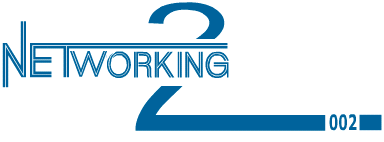Peer-to-Peer systems: Architectures and Performance
|
|
|
|
|
sponsored
by
|
|
|
|
|
|
|
|
|
|
|
|
|
Peer-to-Peer systems
monday, may 20, 9.00-12.45
Peer to peer systems are quite an old idea (IP routing is a peer to peer system, and is over 20 years old). However, through the ubiquity and connectivity of the Internet, the end user has taken control of her fate, and this has made these systems a highly attractive way to build dis-intermediate content services.
This tutorial will provide a taxonomy of such systems , ranging from the basic file sharing of Napster and Gnutella and variants, through to the persistent storage of freenet and eternity, and via Content Addressable Networks, such as CAN, Chord, Pastry, and Mixnet, Publius Xenos, and Mojonation.
We'll look at the difference between P2P and pure overlay systems, and how they interact. We'll look at how P2P and overlay services may merge into the infrastructure. We'll look at degrees of transparency.
These systems have different levels of complexity and distributedness for their service discovery and topology organisation, and subsequent indexing, searching, routing, as well as providing a wide range of levels of anonymity, availability, integrity, and payment.
The second part of the tutorial will cover the claimed and actual performance of such systems, including robustness, delay, route complexity and so on. We will also take a look at how to measure P2P systems.
The Computer Laboratory
University of Cambridge UK
Email : {Jon.Crowcroft, iap10}@cl.cam.ac.uk
 Jon
Crowcroft is the Marconi Professor of Communications Systems in the
Computer Laboratory as of October 2001. He been working in the area of
Internet support for multimedia communications for nearly 20 years. Three
main topics of interest have been scaleable multicast routing, practical
approaches to traffic management, and the design of deployable end-to-end
protocols. He leans towards a "build and learn" paradigm for research.
Jon
Crowcroft is the Marconi Professor of Communications Systems in the
Computer Laboratory as of October 2001. He been working in the area of
Internet support for multimedia communications for nearly 20 years. Three
main topics of interest have been scaleable multicast routing, practical
approaches to traffic management, and the design of deployable end-to-end
protocols. He leans towards a "build and learn" paradigm for research.
He graduated in Physics from Trinity College, University of Cambridge in 1979, gained an MSc in Computing in 1981, and PhD in 1993 both from UCL. He is a member of the ACM, a member of the British Computer Society, a fellow of the IEE and the Royal Academy of Engineering and a Senior Member of the IEEE. He is also on the editorial team for Computer Networks, IEEE Networks, Monet, and Cluster Computing. He is involved in two COST actions for the UK, 264 on Group Communication which sponsors the NGC 2001 Workshop, and 263 which sponsors the workshop on Quality of Future Internet Services. 2001 Workshop, as well as Cabernet. He is currently on the Internet Architecture Board.
He is on the PC for SIGCOMM 2002 and Infocom 2002, and co-program chair of SIGCOMM 2003. Recently, he joined the OST's E-Science Technical Advisory Group, and Grid Networking Team. He likes teaching, and has published a few books based on learning materials.
Personal web page: http://www.cl.cam.ac.uk/users/jac22
Ian Pratt is a University Lecturer and Fellow of King's College. As a member of the Computer Laboratory's Systems Research Group (SRG) for over six years, he has worked on number of influential projects, including the Fairisle ATM LAN, the Desk Area Network workstation, and the Nemesis operating system.
He lectures a number of Systems courses, including Comparative Architectures (about advanced microprocessor design), Digital Communication II, and Structured Hardware Design. He is also co-organiser of the first-year hardware practical laboratories.
His research interests cover a broad range of Systems topics, including computer architecture, networking, and operating system design.
Personal web page: http://www.cl.cam.ac.uk/users/iap10

